My shame
Although it has been around six years, I often remember when I first arrived at the ikastola de Hendaia. I arrived with a boy of a few and a half years in arms, shy and ignorant, and I paid attention to the letter I had just received to give him his name as soon as possible, although it seemed to me that I still had plenty of time to enroll.
The director then received me sympathetically, as he says. And after teaching me the classrooms, the patio, the dining room and all the other corners, she took me to her makeshift office to speak more calmly about downtown rules than I expected. In the absence of space, he had placed the study tables in a small warehouse.
Two events of that quote surprised me. First of all, I thought I saw on a visit to the children's room: More than twenty children of 2-3 years old, who were sitting each other in long, box-shaped chairs, with their eyes very open and their mouths intertwined, looked at the teacher silently, without moving, immobile. I wanted to ask how this degree of discipline is achieved. He told them wonderful stories to have them paralyzed as statues. Let's know if I had mesmerized them.
Secondly, when I was in the warehouse, the X-ray was done by the director. “Therefore, you will have the problem with the French,” he concluded suddenly, as soon as I told his curiosity that at home we spoke only in Basque. We. I mean, kids. At ikastola.
Like these 2-3 year-olds, my lower jaw suddenly relaxed. The problem is French, because we do not do it in French. No, even though we often get it wrong in mathematics, even in the simplest sums. Neither in history, nor in Basque synthetic verbs, nor in spelling, nor in the body, nor in music, nor in relationships...
I could make cheap jokes, but I shrunk. When you open your mouth, you're embarrassed. And I almost asked for forgiveness, for being from the South, for my low French level, so I will not be able to transmit to the children, for everything that made me as alien to the Basques as the deer. He recommended, however, in a very dry tone: “You will have to make strength in it.”
That kid who was in his arms will soon be eight years old. Now that he has reached the second level, and following the Seaska resume, the French will occupy a significant space. It has two classrooms, each of which has a professor that differs from the two languages they are working on. That is, to speak in Basque and in French in the other. So as not to confuse both worlds.
Recently, at the parents' meeting, the French teacher told us about the importance of loving the language. He also gave us a general map to find out what the French level of the students is, what it teaches grouped by what they know. He also gave us a recommendation, once again, to fathers and mothers who spoke poorly in French or with an improper accent: “It’s better not to help the child, because bad customs or bad pronunciation will spread to him.”
I was even more surprised than that day when I first arrived at the ikastola. Therefore, the child should be encouraged to be interested in reading, to do a little daily, to collaborate in mathematics, in history, in compact verbs, in relationships or in logic or whatever, but in French not. Because we recognize to French the perfection and the value we deny to Euskera. And because from our shame, from our scarce prestige, from our complexes, we have built a relationship with him, with the real world.
And we call it compulsory primary education.
Pasa den asteko "kaleratze ilegala" salatu dute hainbat herritarrek, ostiral arratsaldean.
Jauzi Ekosizialeko kideek antolatzen duten bigarren edizioa da. Euskal Herriko trantsizio ekosozialak "inoiz baino premia handiagoa" duela adierazi dute, "datozen aldaketa sakonen aurrean trantsizio justua nahi bada".
Manifestazio jendetsu batek herriko kaleak zeharkatu ditu, Poliziaren gehiegizko dispositibo batek zainduta, gazteek kudeatutako guneen defentsan eta Gaztetxeak erasoen aurrean defendatzeko. Manifestazioaren amaieran, publiko egin dute iragarpena.
Parisko Auzitegi Korrekzionalaren arabera, 2,9 milioi euro desbideratu zituen Frantziako RN Batasun Nazionalak 2004 eta 2016 artean. Le Penez gain, alderdiko beste 24 kide ere errudun jo dituzte. Helegitea aurkeztuta ere, RNko buruzagia ezingo da aurkeztu 2027ko Frantziako... [+]
Hego Euskal Herriko lau hiriburuetan egin dituzte manifestazioak. Israelek Palestinan egin duen eta aurrera daraman genozidioarekin kolaboratzen duten enpresei laguntza publikoa emateri uzteko eskatu diete Nafarroako Gobernuari eta Eusko Jaurlaritzari.
Hezkuntza Sailak EITBri azaldu dioenez, ikastetxe bakoitzean izan beharreko baliabideak batzar teknikoetan negoziatu partez, mahai negoziatzailean landu beharko lituzkete. Bihar eta etzi greba egingo dute EAEko ikastetxe publikoetako irakasleek.
Joan den ekainaren amaieran bukatu genuen Conversión de la industria militar en Euskal Herria para no fabricar más guerras (Armagintza industriaren moldaketa Euskal Herrian, gerra gehiago ez sortzeko) liburuaren lehenengo zatiak Gerra badatorrela! du izenburu, bertan... [+]
Iruña-Veleia auzia “behin betiko” argitzea eskatu dute martxoaren 30ean, Gasteizen egindako manifestazioan. Iruña-Veleia argitu, ez suntsitu plataformak aztarnategian egindako “txikizioak” salatu ditu eta Arabako Foru Aldundiaren ardura... [+]
Etxebizitza eskuratzeko orduan pertsona arrazializatuek eta migratzaileek jasaten duten bazterketa sistematikoa salatu dute Gasteizen, agerraldi baten bidez. Apirilaren 5ean Donostiara bertaratzera deitu dute, etxebizitza-eskubide unibertsalaren alde.
Usurbil herri zaintzaileagoa izateko lankidetzan ari diren herrikide, eragile eta erakundeen talde argazkia duzue albiste honi atxikitakoa. Larunbatean Sutegin egindako "Usurbil, herri zaintzailea" izeneko ekitaldian atera genuen. Norabide horretan herri hau egiten ari... [+]
Kargua "ohore handiz, erantzukizunez eta apaltasunez" hartuko duela adierazi du Atano III.a pilotalekuan, 1.800 lagunen aurrean. Aberri Batzarrak Euskadi Buru Batzar berria osatuko duten zortzi kideak ere hautatu ditu.
Egin egunkariko zuzendaritzako kide eta langilea Donibane Lohizunen erail bazuten ere, Algorta jaioterrian egin diote oroimen ekitaldia, igande eguerdian. Bertaratutako lagun zein senitartekoek presente izan dute estatuaren indarkeriak hil zuela.
Historia errepikatzen dela idatzi zuen Marxek, “lehenik tragedia gisa, gero fartsa moduan”. Armagintzaren eta militarismoaren inguruan errepikapen hutsa ez, espiralean goraka doan buklea ari gara bizitzen, fartsatik asko duena, eta tragedian amaitzeko gero eta aukera... [+]
Astelehen honetan hasita, astebetez, Jon Miranderen obra izango dute aztergai: besteren artean, Mirande nor zen argitzeaz eta errepasatzeaz gain, bere figurarekin zer egin hausnartuko dute, polemikoak baitira bere hainbat adierazpen eta testu.









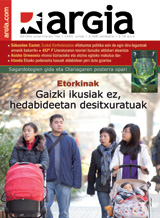

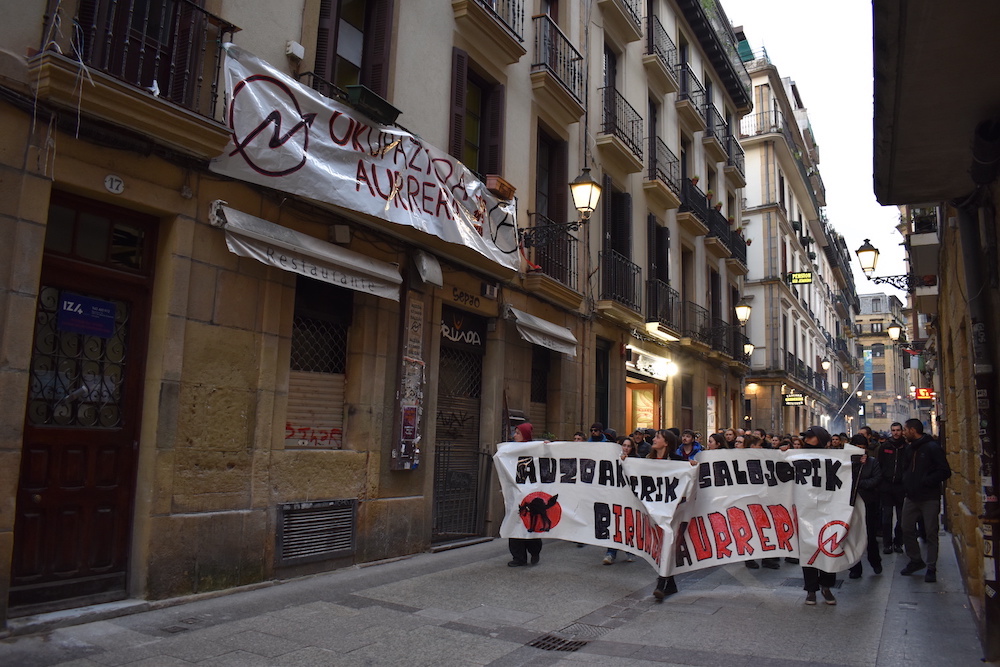
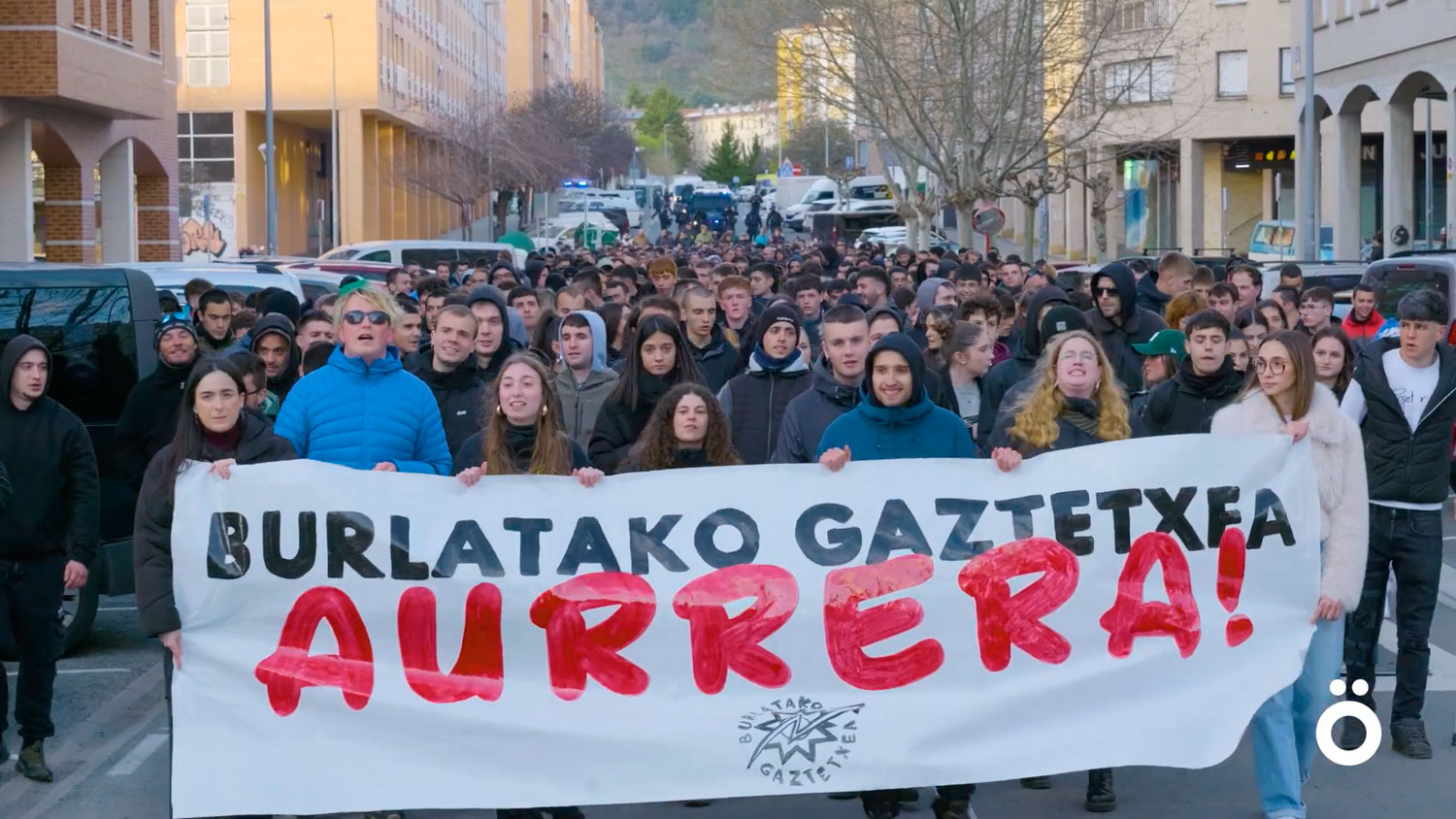



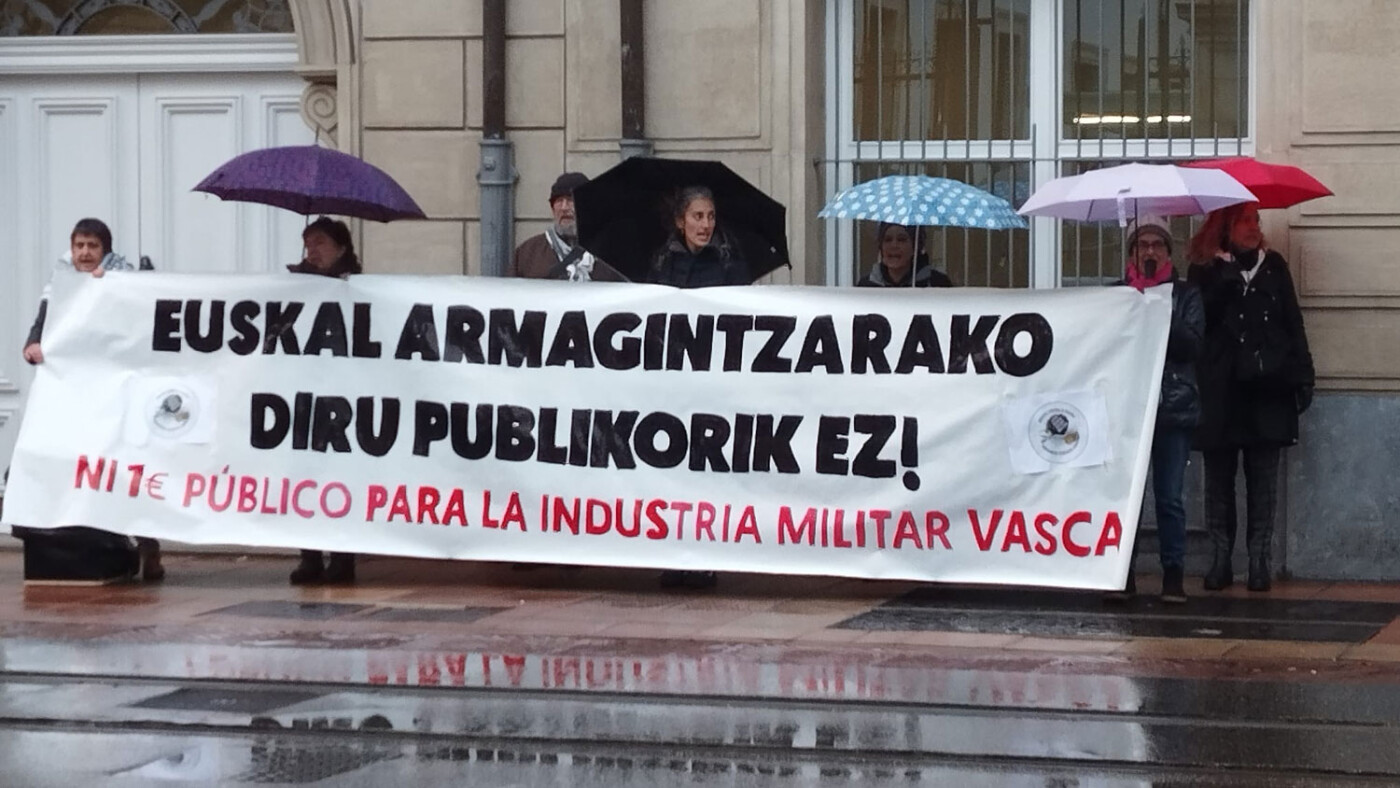
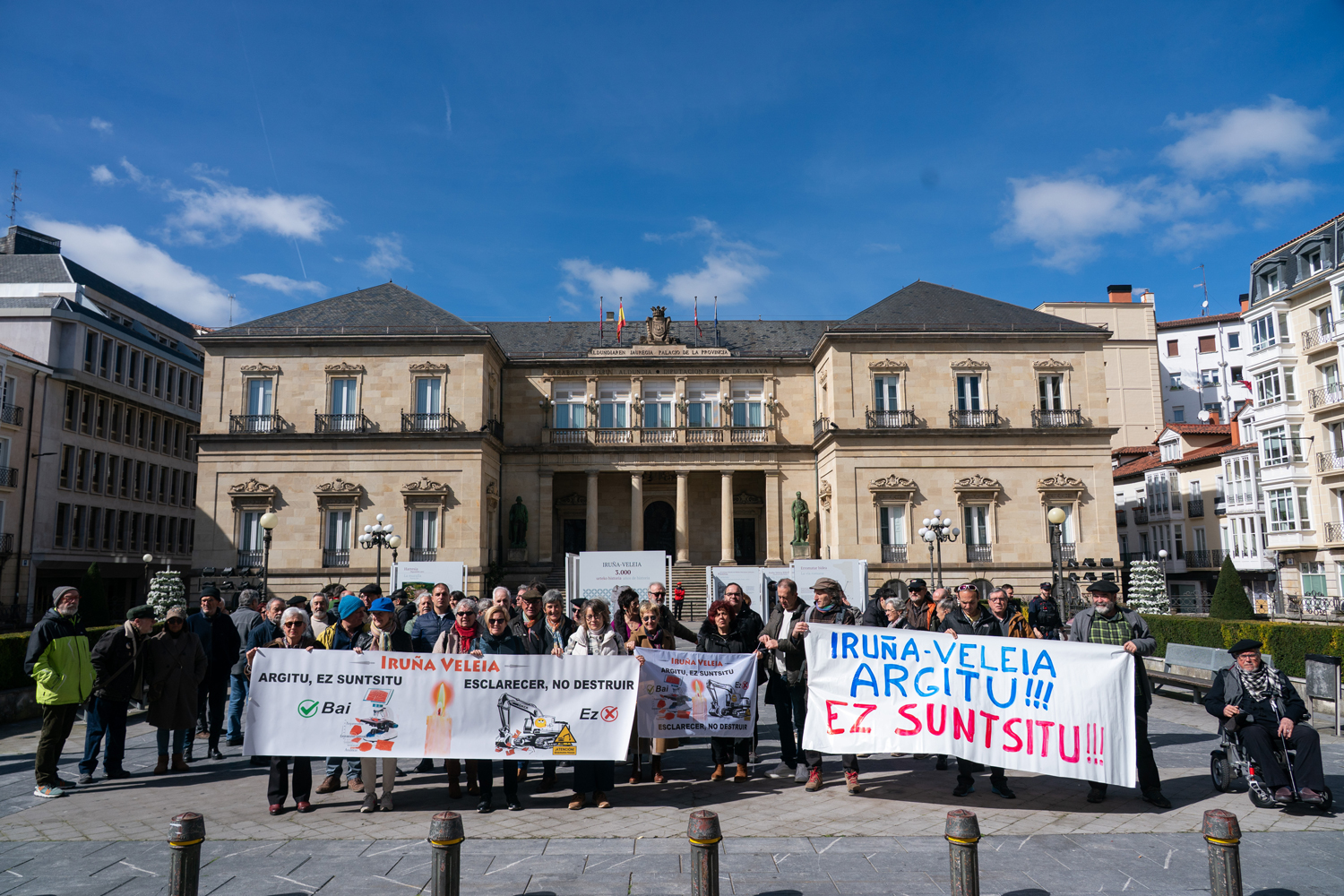

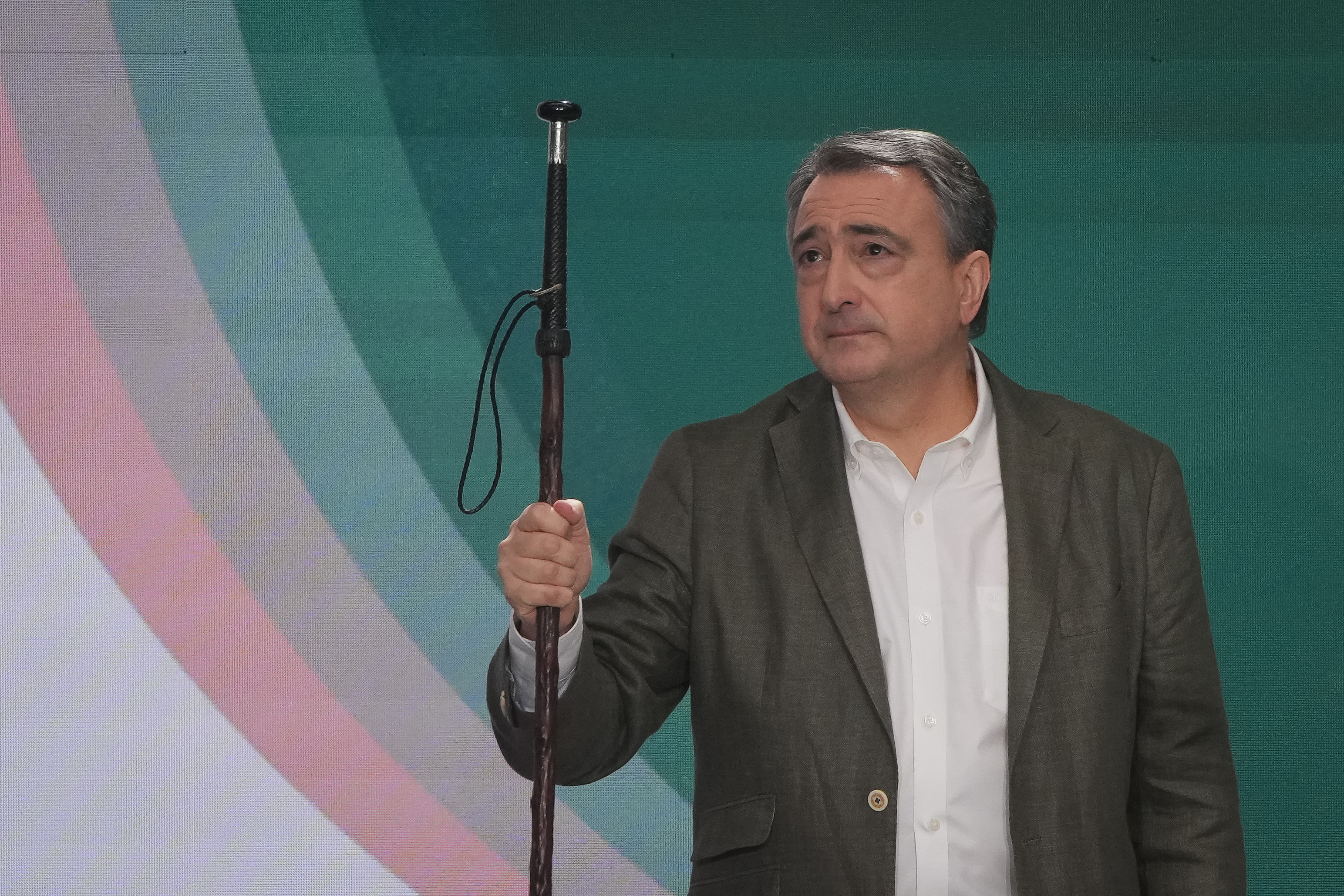


.jpg)
